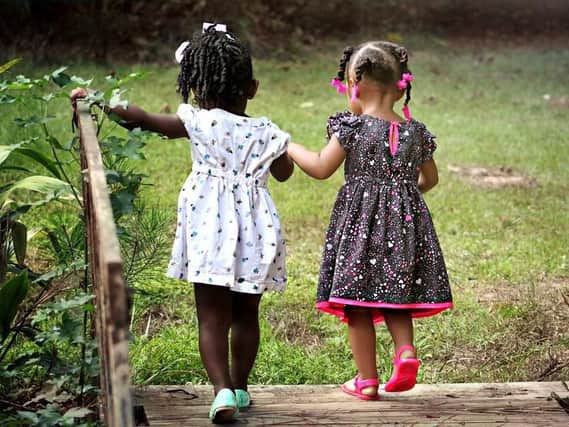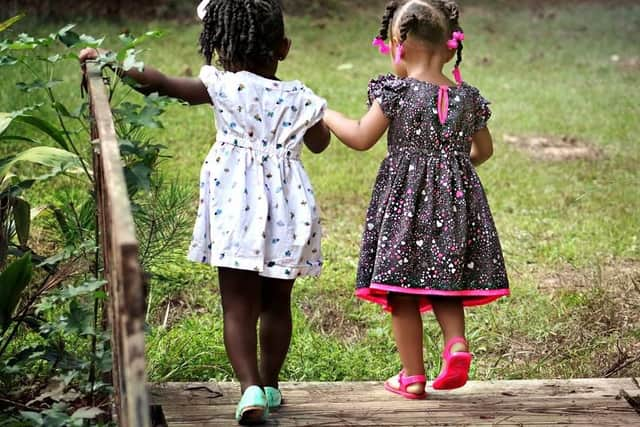Nottinghamshire youth services cut by £8.8m in six years


The Local Government Association has warned that children's services in England will face a £3.1 billion funding gap by 2025, despite seeing a significant rise in demand.
This means councils are being forced to divert their limited funding away from preventative work, and into services for children at immediate risk of harm, they said.
Advertisement
Hide AdAdvertisement
Hide AdChildren's charity Barnardo's said the consequences of failures to step in early were clear to see.


“In every community, children face growing challenges, from knife crime and gangs, to cyberbullying and online grooming, to a crisis in mental health," said chief executive Javed Khan.
"Children are suffering from trauma, affecting their education, health and happiness, with lifelong impact."
But what does this mean for children in Nottinghamshire?
Services for young people
Overall, Department for Education figures show spending on children's and youth services in Nottinghamshire has seen a real-terms drop of five per cent over the last five years.
Advertisement
Hide AdAdvertisement
Hide AdCouncils in England are legally required to provide a range of services for young people, including advice and support services for issues such as housing, employment and substance abuse, as well as recreational and educational services including youth clubs.
In 2012-13, this spending in Nottinghamshire stood at the equivalent of £17.5 million in today's terms, adjusted for inflation.
By 2017-18, it had fallen to £8.7 million.
Across England, spending fell by 53 per cent over the same period, from £883 million to £416 million.
Youth justice
Councils in England must also establish youth offending teams, to help prevent children and young people becoming involved in crime, or to stop reoffending.
Advertisement
Hide AdAdvertisement
Hide AdAcross England, spending is down by 22 per cent, or £75 million.
The Local Government Association said youth offending teams had an outstanding track record but had been "victims of their own success".
"As the numbers of young offenders has fallen, so has the grant from central government to continue the preventative work that caused the fall in the first place," a spokeswoman said.
“Councils must be given the resources they need to work with young people and prevent their involvement in crime in the first place, rather than simply picking up the pieces after offences have been committed."
Looked-after children
Advertisement
Hide AdAdvertisement
Hide AdIn 2012-13, spending on looked after children – those in residential or foster care – made up 39 per cent of Nottinghamshire County Council's total children and young people's budget.
By 2017-18, this had risen to 44 per cent .
It was a similar story across England, where the proportion rose from 39 per cent to 48 per cent.
A spokesman for the Children's Commissioner said: "All of this shows that less money is being spent on low-level work and more money is being spent on children in crisis.
"Essentially, what this means is we are supporting many fewer children, but are supporting them in more expensive ways."
Advertisement
Hide AdAdvertisement
Hide AdIn response to the fall in spending on children and young people's services, a spokesman for the Department of Education said: "We must help parents who face difficulties to strengthen their family relationships so they can properly support their children.
“That is why we’re putting an extra £410 million into social care this year, including children’s, alongside £84 million over the next five years to keep more children at home with their families safely, helping reduce the demand on services."
Nottinghamshire County Council
Councillor Philip Owen, chairman of the Children and Young People’s committee at Nottinghamshire County Council said that these services are a 'very high' priority for the county council, and efforts are being made to expand provisions
Coun Owen said: “Children and Young People’s services is a very high priority of the current administration, in fact we have reversed some of the reductions in youth provision that had taken place under the previous administration.
Advertisement
Hide AdAdvertisement
Hide Ad“We recognise completely the point that is made regarding preventative work which in turn benefits the young people and also makes good financial sense in the long term.
“While other councils across the country are reducing their youth services, we are expanding with provision at weekends and during school holidays.”
Laurence Jones, service director for commissioning and resources at Nottinghamshire County Council, said:
“We recognise the pressures on children’s services described by Barnardo’s and agree with the need for effective early intervention. However, in Nottinghamshire, we have continued to prioritise the needs of children and families in our Council plan and in particular our front line delivery of services. The budget for the Children and Family Services in 2019/20 will be £127 million compared to £117m in the previous year.
Advertisement
Hide AdAdvertisement
Hide Ad“The number of young people entering the youth justice system in Nottinghamshire has fallen by over 70 per cent since 2008 and the local authority continues to provide a comprehensive response to youth offending, which is highly rated by external inspectors. This is despite falling grant income from local government and from contributions from partners such as the National Probation Service. In Nottinghamshire there is a continuation of preventative work both through the Youth Offending Teams and also through a wider programme of parenting support and youth work activities.
“Nottinghamshire continues to have one, if not the, largest universally accessible Youth Service in the country with 149 sessions each week delivered from 34 youth centres, additional targeted outreach youth sessions at evenings and weekends and an adventure and outdoor education offer delivered through the Mill Adventure Base. £120,000 extra is being invested this year to extend this provision further.
“We are committed to helping families as early as possible to avoid problems from escalating. Both the government and the Council have invested significantly in evidence based approaches to family support, including through up to £2.3 million made available to the county each year through the Troubled Families programme. In 2017-18 we spent £223 per head on our early years services for vulnerable children compared with a national average spend of £154.
“There are more children looked after now than there were five years ago and the complex needs of this group have grown, particularly in relation to emotional and mental health issues. The price of an individual placement has also increased and as such the amount being spent on residential and foster placements has grown. As a local authority we are confident that every child in care is there because they absolutely need to be and that the placements that we provide are of the highest quality.”
